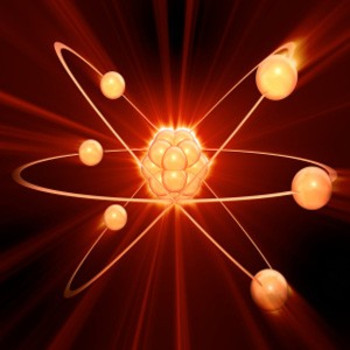How does the nucleus differ from electrons?
1 Answer
Jun 21, 2016
They differ in size, mass and charge.
Explanation:
I assume you mean the nucleus of an atom, not the nucleus of a cell.
The nucleus of an atom consists of neutrons (no charge) and protons (positive charge). Electrons orbit around the nucleus and have a negative charge.
Mass of these particles is measured in atomic mass unit (amu).
Both protons and neutrons have a mass of approximately 1 amu. Electrons are much lighter and smaller with a mass of only 0.0005 amu.

